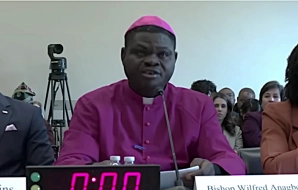
The cries of Benue State echo across Nigeria, but it feels as though no one is truly listening.
Since March 28, the blood of innocent Christians has soaked the soil of Otukpo County, and the silence from those entrusted with their safety is deafening. The Fulani militant herdsmen have launched wave after wave of violent attacks, burning homes, destroying families, and leaving entire communities in mourning. These are not just numbers—each life lost is a name, a face, a soul torn from this earth in senseless cruelty. Each abduction is a story halted mid-sentence, each widow a symbol of unimaginable grief.
In the quiet night of April 5, Otobi village was shattered. Families asleep in their homes were woken by the sound of gunfire. Three Christians were murdered. Dozens more were taken. Thousands fled into the darkness, into the bush, clutching children and only what they could carry. Just days earlier, the outskirts of Otukpo town saw two more lives stolen, and thirteen more Christians taken against their will. And still, it continues.
From Okpomaju to Okete, from Olena to Asa—these places, once vibrant with life and worship, are now haunted by memories of massacres. In Olena alone, from March 28 to 31, an entire Christian community was besieged. Dozens died. More vanished. Their homes, now piles of ash, are monuments to a people abandoned by those who swore to protect them.
It is not merely negligence. It feels like betrayal.
Local leaders and diaspora voices have cried out. Parliamentarians have documented the horror. Christian organizations have pleaded for justice. Survivors recount the names of the dead, the children who scream in their sleep, the churches razed to rubble. Yet what meets them is a hollow promise of action, or worse—indifference. Police say operations are “ongoing,” but the bodies continue to fall.
What kind of world do we live in where lives are cheaper than silence?
Bishop Wilfred Anagbe bravely told the U.S. Congress what many fear to speak aloud: this is no mere land dispute. This is a systematic erasure—a brutal campaign to eliminate Christian identity from Nigeria’s Middle Belt. Churches are destroyed. Christian women are raped. Men are slaughtered. Villages are renamed by their occupiers, and those left behind are forced to forget the past.
This is genocide in slow motion.
The Fulani people, a vast and diverse group, are not all to blame—but radicalized Fulani militias, driven by Islamist ideologies, are terrorizing with a strategy that mirrors Boko Haram and ISWAP. They burn what they do not own. They kill what they cannot control. And they do so with a cruel precision, targeting symbols of faith, of identity, of hope.
According to Open Doors’ 2025 World Watch List, Nigeria remains the deadliest country for Christians. Of the 4,476 Christians murdered worldwide for their faith in a year, 3,100 were Nigerians. The air of persecution hangs thick, and every prayer feels like a cry into an uncaring sky.
When will the world care?
When will these names matter?
When will the Nigerian government stand not as an observer, but as a defender?
There is still time to choose compassion. Still time to awaken justice. But every day of silence is another day of bloodshed. And if the world continues to look away, then who will remember the Christians of Benue?
Who will tell their stories?
Who will mourn their dead?